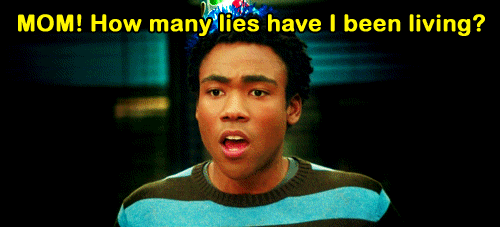 Why do many Americans care so much about Santa Claus? Is it just a basic winter-time tradition or something more meaningful? If you are a parent that is celebrating this tree-decorating, present-wrapping tradition, you know all too well that this idea of "Santa" is much more than leaving cookies and milk out overnight for some bearded man that will climb through your chimney in the wee hours of the morning.
Why do many Americans care so much about Santa Claus? Is it just a basic winter-time tradition or something more meaningful? If you are a parent that is celebrating this tree-decorating, present-wrapping tradition, you know all too well that this idea of "Santa" is much more than leaving cookies and milk out overnight for some bearded man that will climb through your chimney in the wee hours of the morning. Though many of us know Santa is not actually real, we should not allow the wonderful imagination of the younger, upcoming generations to be ruined by us. The magic of childhood is held together by the idea of imagination. When you take that away, there is no special meaning to growing up anymore.
It is a big, exciting moment for a child when they go up to Santa's lap and he/she tells him what they want for Christmas. Adults should not ruin the bright light of the child's mind by crushing it with reality. The best part about being a kid is just that: not having to deal with the real world just yet. Telling them that Santa is not real from the very start may put a great boundary on what they will be able to imagine in the future while growing up, such as having imaginary friends and whatnot.
Although, on behalf of those believing that kids should be told that Santa is not real, their argument is valid, too. It causes stress on the child to learn that a great part of their holiday season was a great, big lie. It may cause tension between family members, particularly between children and parents, and may cause an extra abundance of avoidable conflict. So, maybe there lies a good medium in the two arguments against whether or not the story of Santa should be told as real or not. Should kids be told at a certain age that Santa is not real? Or should they be left to find out on their own? Personally, I had to find out on my own by finding the Christmas presents stuck at the top of my mother's closet. Was I sad? No, I was more so enlightened by the fact that I was able to pick and chose what presents I actually wanted, instead of allowing some man that did not know me pick them for me.
Telling your child that Santa is not real could potentially save you a lot of money by not buying unwanted toys, but what's the magic in that? For children, waking up on Christmas day and running to the tree with wrapped surprises underneath is the whole joy of this holiday. They don't know what's wrapped beneath the holiday-themed paper, and the anticipation for what's inside plays a really grand role in the whole holiday tradition.
So all in all, should parents tell their children that Santa is not real, or should the children be left to find out on their own? Personally, I believe the children should find out Santa is not real on their own time, as they grow older and wiser with the world. Finding out fact from fiction is a part of growing older and is an even more important part of the maturing process. Allow your children to learn on their own time. After all, it's their life, not yours.
















